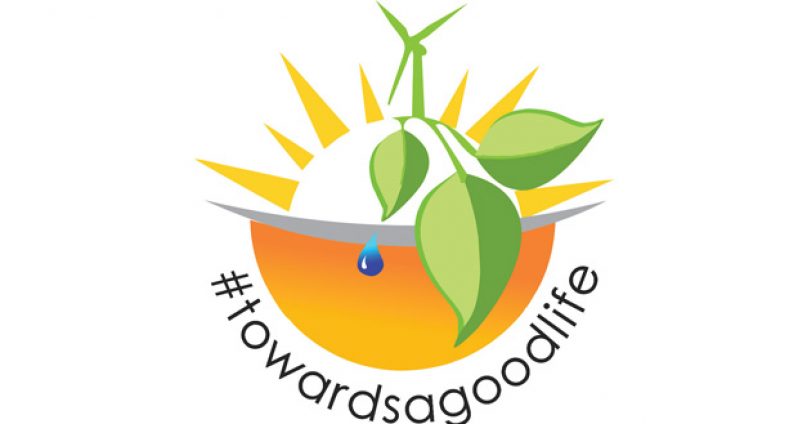By Clement Henry, Ph.D candidate, University of the West Indies
CORRUPTION and violence have captured the headlines in Guyana for over a decade and a half, or probably longer; and perhaps will continue to steal the headlines for some time in the future. Both issues have serious consequences for development and human security.Transparency International (TI) defines corruption as “the abuse of entrusted power for private gain.” According to TI, corruption undermines the rule of law by eroding democratic institutions essential for fair and equitable societies; depletes national wealth, since vital resources are misdirected away from important developmental projects; ravages entire ecological systems through careless exploitation of natural resources; weakens people’s trust in the political system, its institutions and its leadership; and corrodes the social fabric of society.
Yury Fedotov, Executive Director of the United Nations Office on Drugs and Crime (UNODC), speaking at a high-level meeting of the sixty-seventh session of the UN General Assembly in New York, declared that corruption circumvents fair tendering processes, and the consequences are severe: funding meant for important development and human security projects are diverted into the hands of corrupt officials; and failure to win contracts on the part of some firms can cause businesses to fail, creating unemployment.
Dr Carl Stauffer explains that corruption develops a self-perpetuating life of its own, like all other forms of systemic violence do. Drawing on rational choice theory, he further explains that corruption originates from individuals making calculated choices of self-interest -– a kind of cost-benefit analysis regarding the risks and advantages of participating in corruption. Many enter into pseudo-collaborations, convincing themselves and others that participation in the corrupt system is the only way to personally survive, and even to preserve societal order.
Corruption is a form of structural violence, and therefore must be addressed in the effort to promote the ‘Good Life in a Green Economy’. Structural violence is a term coined by Johan Galtung to refer to any constraint on human potential due to economic and political structures. Galtung differentiates between two types of violence. Firstly, direct violence is the type of violence where there is an actor committing the act; and secondly, indirect or structural violence is the type of violence where there is no such actor.
Structural violence finds its genesis in the social, political, and economic institutions and structures, and generally leads to comparatively similar amounts of death and harm to individuals as direct violence. Structural violence is as dangerous as direct violence, because it often leads to direct violence of greater intensity and the fracturing of society. According to Galtung, even though direct violence tends to be more visible and easily perceived, there is no reason to believe that structural violence amounts to less suffering than direct violence. In fact, structural violence can create fertile conditions for direct violence to thrive.
Violence, direct or structural, is a major obstacle to people’s survival prospects, well-being and quality of life. Violence limits people’s choices, and robs them of opportunities for meeting their basic needs and personal development. Human deprivation and suffering, poverty, inequality, social exclusion, and inter-ethnic and inter-communal conflicts will be significantly reduced when individuals and communities feel secure and protected from threats that originate from direct and structural violence.
In contradistinction, violation of the basic human needs of individuals, exclusion and immiseration of entire communities lead to human suffering and social and communal deterioration, leading to more violence in its direct and structural manifestations. These direct structural and manifestations in turn lead to the worsening of peoples’ life chances and survival prospects, greater misery and human sufferings.
Breaking this cyclical relationship is contingent on the authority’s willingness and ability to reduce or avoid violence in all its manifestations, and thus provide human security.
How can we address corruption? I supply two simple but necessary solutions. Firstly, government should endeavour to ensure transparency and openness in its spending. Citizens should be given opportunities to scrutinize government activities and spending. In this regard, attention must be given to improving literacy across the society and improving press freedom. Secondly, accelerate efforts in e-governance.
E-governance reduces corruption by taking away discretion and replacing it with automated processes; making decisions traceable; providing documentation to citizens for follow-up; fostering accountability by guaranteeing citizens’ access to information through the Internet; and creating the conditions for the simplification of rules and processes.
In sum, because corruption as a form of structural violence has consequences equivalent to, or worse than, direct violence, it is essential for government and its partners to take drastic measures to combat corruption.
In the absence of these measures, there can be no human security, no inclusivity, no social cohesion, and no good life in a green economy.
(Comments can be sent to towardsagoodlife@gmail.com)
[box type=”shadow” align=”aligncenter” ]CLEMENT HENRY is a Ph.D candidate at the Institute of International Relations, University of the West Indies, St Augustine Campus. His doctoral dissertation is entitled “A Theoretical and Empirical Analysis of the Dimensions of Human Security: the Case of Guyana”. Clement is currently the Project Coordinator of the Citizen Security Strengthening Programme (CSSP). His publications include: “An Analysis of the Effectiveness of Foreign Aid Flows to Guyana” in Selected Essays in Contemporary Caribbean Issues (eds., Anatol & Kirton). His research interests include human and citizen security, poverty, development, economic growth, and development finance.
[/box]



.jpg)








